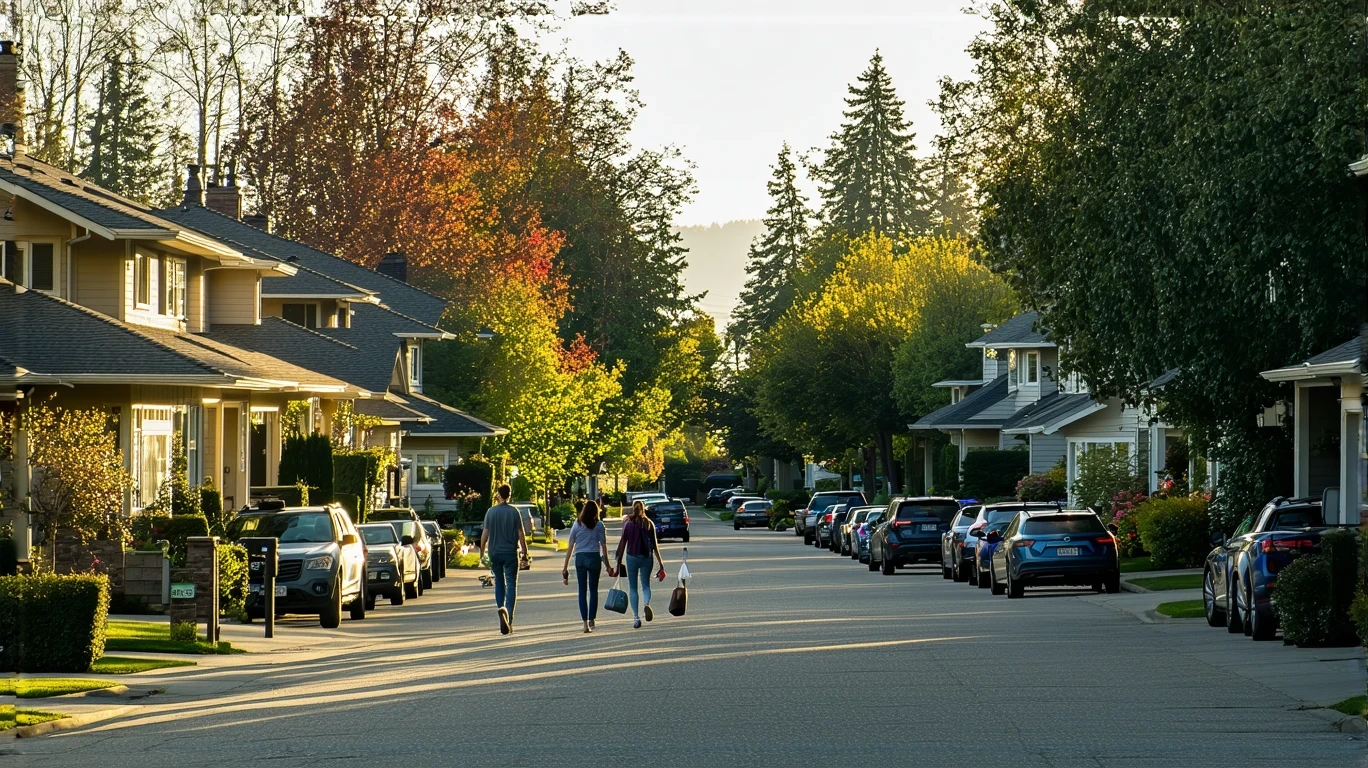
Renting vs. Owning in Kirkland: What You’ll Pay
When deciding between an apartment or house in Kirkland, the cost of living is a key factor. Renting a 2BR apartment in Kirkland typically costs $2,400/month, while a 3BR house may cost $3,200/month. The average rent for a 3BR house in Kirkland is $3,200/month, reflecting the city’s desirable location and strong housing market. Over the past year, the cost of renting a 3BR house in Kirkland has increased by 6%, with more affordable options found in neighborhoods like Totem Lake and Juanita.
For those looking to buy, Kirkland’s housing market remains competitive. Single-family homes are the most popular choice for new buyers, with 65% opting for a house over a condo or townhome. The median sale price for a 3BR house in Kirkland is $950,000, requiring a significant down payment and monthly mortgage. However, owning a home can be a smart long-term investment, especially considering Kirkland’s strong property value appreciation.
Table: Cost Comparison – Apartment vs House
Here’s a side-by-side breakdown of common monthly costs in Kirkland:
| Expense | 2BR Apartment | 3BR House |
|---|---|---|
| Rent/Mortgage | $2,400 | $3,200 |
| Utilities | $150 | $250 |
| Internet | $60 | $80 |
| Insurance | $20 | $120 |
| Maintenance | $0 | $200 |
| HOA | $0 | $150 |
| Total | $2,630 | $4,000 |
Estimates are for mid-range units with typical usage, expressed as gross monthly costs.
As the table shows, renting an apartment in Kirkland is significantly cheaper than owning a house on a monthly basis. Houses come with additional costs like higher utilities, insurance, maintenance, and potentially HOA fees. For a detailed look at typical monthly expenses in Kirkland, check out our average monthly budget breakdown.
Utility and Upkeep Differences
In addition to higher base rent or mortgage payments, houses in Kirkland tend to have steeper utility and upkeep costs compared to apartments:
- Water/Sewer: Houses use 30% more water on average due to outdoor spaces and more bathrooms.
- Electricity: Cooling and heating a larger space leads to 20-40% higher electric bills.
- Landscaping: Lawn care and yard work can add $100+ per month, a cost that apartments don’t have.
- Maintenance: From plumbing to roof repairs, houses have more systems that require upkeep over time.
While newer Kirkland apartments often include trash, internet, and sometimes even utilities in the rent, homeowners must budget for these costs separately. Houses also require more time and effort to maintain, whether that’s mowing the lawn, cleaning gutters, or fixing appliances.
Lifestyle Tradeoffs
Beyond hard costs, there are important lifestyle differences to consider when choosing between an apartment or house in Kirkland. Apartments offer a low-maintenance, urban lifestyle with amenities like gyms and pools. They’re often located in walkable areas near dining and transit. However, apartments provide less space, privacy, and control compared to houses.
Houses, on the other hand, offer more room to spread out, personalize the space, and accommodate a family or pets. Having a private yard is a big draw for many. Some may prefer the extra space a house provides, especially if they work from home. However, that space comes with added upkeep and less access to urban conveniences. Parking and commute times are other factors, as many Kirkland houses are located farther from downtown.
Ultimately, the apartment vs. house decision depends on your lifestyle priorities. Young professionals may prefer a centrally-located apartment, while a family with young kids might require a house with a yard. Many Kirkland residents choose apartments for walkability, while families prefer houses for privacy and room to grow.
Which Is Cheaper Long Term in Kirkland?
While renting an apartment is cheaper on a monthly basis, buying a house in Kirkland could be more economical over the long run. Assuming a 4% annual rent increase, a $2,400/month apartment would cost $158,000 over 5 years. Owning a $950,000 house with 20% down and a 4.5% interest rate would cost $225,000 over the same period (including taxes and insurance).
However, after 5 years, the homeowner will have built $75,000 in equity, narrowing the gap. Plus, they can eventually pay off the mortgage, eliminating housing payments. In a city like Kirkland with rapid appreciation, buying can be a smart investment if you plan to stay long-term. But renting remains more flexible and predictable, making it attractive for shorter timelines.
FAQs About Housing Costs in Kirkland
- Q: How much more does a house cost per month in Kirkland?
A: On average, a house costs about $1,400 more per month compared to an apartment when you factor in mortgage, taxes, insurance, and maintenance. - Q: Do Kirkland houses have higher utility bills?
A: Yes, houses in Kirkland typically have 20-40% higher utility costs for electricity, water, and sewer due to the larger space and outdoor upkeep. - Q: Are apartments still cheaper even with pet rent?
A: While many Kirkland apartments charge pet rent around $50/month, they are still significantly cheaper than houses when you consider the all-in costs.
Making the Right Housing Choice in Kirkland
When deciding between an apartment or house in Kirkland, it’s important to look beyond the sticker price. While renting is cheaper in the short-term, buying can be a better deal long-term. Houses offer more space but come with added upkeep. Apartments provide a low-maintenance lifestyle but with less room and control.
Consider your budget, lifestyle needs, and long-term plans. Can you afford the upfront costs of buying? Do you need a yard for your dog? Are you planning to stay in Kirkland for 5+ years? Answering these questions will help guide your decision. For more tips, check out our guides on renting on a budget and first-time home buying in Kirkland.
